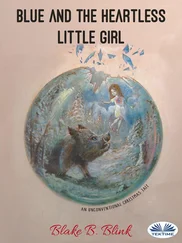Annie Randall White - The Blue and The Gray
Здесь есть возможность читать онлайн «Annie Randall White - The Blue and The Gray» — ознакомительный отрывок электронной книги совершенно бесплатно, а после прочтения отрывка купить полную версию. В некоторых случаях можно слушать аудио, скачать через торрент в формате fb2 и присутствует краткое содержание. Жанр: foreign_prose, История, foreign_edu, foreign_antique, на английском языке. Описание произведения, (предисловие) а так же отзывы посетителей доступны на портале библиотеки ЛибКат.
- Название:The Blue and The Gray
- Автор:
- Жанр:
- Год:неизвестен
- ISBN:нет данных
- Рейтинг книги:3 / 5. Голосов: 1
-
Избранное:Добавить в избранное
- Отзывы:
-
Ваша оценка:
- 60
- 1
- 2
- 3
- 4
- 5
The Blue and The Gray: краткое содержание, описание и аннотация
Предлагаем к чтению аннотацию, описание, краткое содержание или предисловие (зависит от того, что написал сам автор книги «The Blue and The Gray»). Если вы не нашли необходимую информацию о книге — напишите в комментариях, мы постараемся отыскать её.
The Blue and The Gray — читать онлайн ознакомительный отрывок
Ниже представлен текст книги, разбитый по страницам. Система сохранения места последней прочитанной страницы, позволяет с удобством читать онлайн бесплатно книгу «The Blue and The Gray», без необходимости каждый раз заново искать на чём Вы остановились. Поставьте закладку, и сможете в любой момент перейти на страницу, на которой закончили чтение.
Интервал:
Закладка:
But after weeks of this long, weary struggle, he decided to join the Union army. His mother saw that he believed he was shirking a duty, and that he longed for action.
She thought she would make one more effort to change his purpose. She said to him suddenly one day, when she saw his troubled face: "Ralph, you are only seventeen. You have never been away from your home, and know nothing about hardships and privations. Do you think you could face a cannon, and know that its deadly mouth might lay you low on the field, mangled and torn?"
"Oh, mother, I never think of such things. If I enlist, I must take my chances with the rest. I want to go with the other boys. Eddie Downing and George Martin have and are going into camp to-morrow, at Readville."
"But will the government accept you? Eddie and George are three or four years older than you. There are plenty of men, without taking a boy who is his mother's chief comfort."
"I am strong and well. When I come back, you will be the proudest mother in the land, to think you sent your boy away. I may go with your blessing, may I not? That will protect me."
The boy's eyes were moist with emotion. His mother, with a sigh, gave her reluctant consent, and though many a bitter tear was shed in the loneliness of her room, she bravely hid them from the boy she loved.
Now that the decision was final, she made every preparation for the comfort of the boy who was to leave them so soon. His sisters wept continually—not a very cheerful parting, but Ralph was the idol of his home.
"Mother," he said to her a day or two after she had given her consent, "do not worry about me. I shall do my duty. This war can't last long. Then I'll come back to you, and stay at home as long as I live, depend on that."
His beaming face half reassured her, and she began to share his enthusiasm. He was enrolled as a soldier. Although his youth was at first objected to, his earnestness carried the day, and he was told to report at Camp Hale at once.
He was a real soldier at last! A genuine soldier, who must fight. He did not belong to the would-be soldiers, such as they used to call the "militia," who simply paraded on the open green, or turned out on dress occasions, with the curious for an audience, who would watch and be astonished at their evolutions and their showy uniforms, when the Fourth of July or kindred days made their demands upon them.
In his neat-fitting suit of blue, the cap setting jauntily upon his head, his musket in hand, and his belt with its bayonet buckled around him, he looked so manly that a thrill of pride flashed o'er his mothers face, as she looked at her boy, her Ralph, in his "soldier clothes."
But when the day came for him to leave the only home he had ever known, and he turned to take a last look at its plain walls, his heart almost failed him. His beloved mother stood in the doorway, her hands pressed over her face, while she strove to keep back the choking sobs, as she bade her boy—"Good-bye, and may God bless and protect you." Those solemn words came back to Ralph in many a lonely hour, and brought him consolation and support.
Thus, in many homes, both North and South, were the heartstrings torn, as mothers and sisters bade farewell to the boys in blue and gray, who went to the front, to lay down their lives for duty's sake.
Ralph was a proud boy when he joined his companions in camp, wearing the blue uniform, with its shining buttons bearing the U. S. stamp upon them.
He was naturally retiring, but now he felt as if the eyes of the world were upon him. He had taken an important step, and he would show his friends and that great big world that he knew exactly what he was doing.
Camp life was one continual drill—so it seemed to him. Readville was a quiet little town, but its people were ablaze with patriotism, and the "boys in blue" were the recipients of perpetual admiration. Every move they made was noticed and approved, and it is not to be wondered at if some of them did greedily swallow considerable flattery, which led them to assume quite lofty airs.
The sameness of life in camp soon wearied, and Ralph longed for something more stirring. When the bugle call rang out, every man sprang up, and, after a hasty ablution, at a second call they made a charge upon their breakfast with vehemence, and tin cups and plates rattled in a most discordant fashion. Then the drill began; first with musket and rifle, and then with the bayonet. A bayonet charge was a fierce reminder of the real thing. When men meet the enemy with fixed bayonets, a dreadful slaughter may always be counted on. This drilling was kept up at intervals, all through the day; first in squads and companies, and then the entire regiment would take part in the use of these weapons, and the various evolutions that the drill-master taught.
Ralph was very anxious to become proficient in their use, and while many of the older men grumbled at this work, he kept on, learning at each repetition something more of their actual value.
"You'll have to know all about this," said Lieutenant Hopkins to them, or you'll be in a nice hole when you're caught out in the field. "We don't know how soon we may be sent to the front, and then there won't be much time for this sort of practice. It'll be march and fight then."
Way down in his heart this quiet stripling, hitherto jealously guarded from a knowledge of the world by a fond mother and sisters, had his own dreams of fame burning brightly and steadily. What if he could plan or assist in some grand sortie, and be mentioned in the dispatches as "the gallant private of Company K– Mass. Volunteers, whose valor turned the tide and carried the day?" Then probably he would be summoned before the commanding officer, and honors would be thrust upon him. Perhaps, if he kept on, he might be a general! What would the dear ones at home say then? The picture was too brilliant; his head fairly grew dizzy at the prospect.
"I'll tell you," he said to a comrade, "we are in no danger of starving here in camp, at any rate, if we don't have much variety."
"That's so. What's the matter with pork, beans, soup, bread, molasses (here he made a wry face), rice and hard tack? If we get enough of these, we'll pull through all right," his companion responded cheerfully.
"And we sleep as sound as kittens in our wooden bunks, with plenty of straw for a bed, and our big army blankets over us," continued Ralph.
"The pillows might be a little softer," said Harvey Phillips. "Overcoats doubled up ain't quite as easy shook up as feathers."
"No, but our captain tells me that we are living in clover just at present. Wait till we go into a battle. Perhaps we'll come out without any heads, then we won't need any pillows," laughed Ralph.
"That's true. Your easy times are right here just now," said a "vet," who had been in many a battle in the far West with the red men, and had "smelt powder" to his heart's content. "War looks very pretty on paper, with the big fellows at Washington moving the men like they're at a chessboard, but wait till the guns speak up on the field, and men to men are hurled against each other, to fight like demons. The real thing ain't so romantic, let me tell you youngsters."
"You can't frighten us," said Harvey. "We are no three months' men. We enlisted for the war and we propose to see the war out."
"Boys, I tell you war aren't no pastime. It means work, and hardest kind of work, at that. It's a great thing to organize an army, and keep its various parts in trim. We don't usually go out to fight the enemy with only a flask of powder, and a knapsack filled with soda crackers. There are men and horses and ammunition to carry along."
"Who takes care of all these matters?" asked Ralph.
"The quartermaster. He looks after the rations, the ammunition, in fact, all the supplies—blankets for the men, medicines for the sick and transportation for the baggage. He is usually a captain or a lieutenant. The government appoints him."
Читать дальшеИнтервал:
Закладка:
Похожие книги на «The Blue and The Gray»
Представляем Вашему вниманию похожие книги на «The Blue and The Gray» списком для выбора. Мы отобрали схожую по названию и смыслу литературу в надежде предоставить читателям больше вариантов отыскать новые, интересные, ещё непрочитанные произведения.
Обсуждение, отзывы о книге «The Blue and The Gray» и просто собственные мнения читателей. Оставьте ваши комментарии, напишите, что Вы думаете о произведении, его смысле или главных героях. Укажите что конкретно понравилось, а что нет, и почему Вы так считаете.











